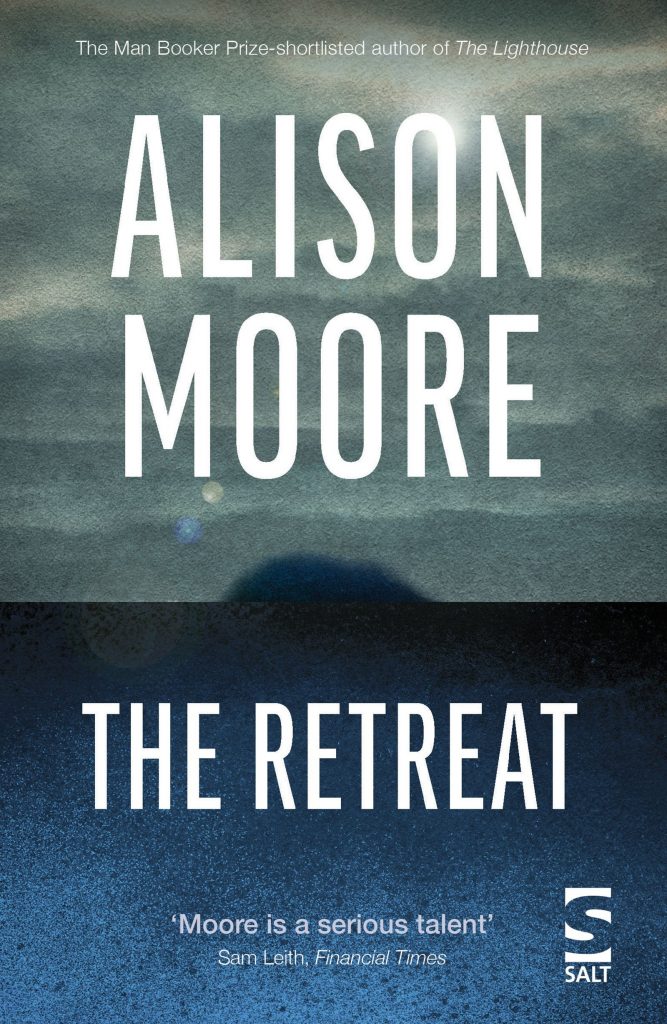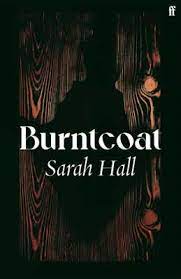A tad late for Hallowe’en, but if you’re looking for a new ghost story to read I can thoroughly recommend Alison Moore’s new novel The Retreat. Moore is an extraordinarily good writer. Each of her five novels to date has been in its own way perfect: not a dud sentence in sight and with the slowly brewing tension deliberately understated. Moore sees no need for shocks or histrionics or forced affect in her work – her deft, spare handling of language, her facility for creating weird situations, above all her intense yet utterly realistic evocation of character are more than sufficient for creating a unique body of work for which ‘unhallowed’ might turn out to be the defining adjective.

Her latest concerns an artists’ retreat, a rather uncomfortable house on a somewhat inaccessible island. Once you’re there it’s difficult to leave without making a scene, without deliberately setting yourself in opposition to your fellows, which is the last thing you want to be seen doing when you’re supposed to be forging a mutually supportive atmosphere of communal creativity. Sandra, a rather disappointed painter, finds her experience of the island falling far short of her expectations. Carol, a novelist in search of sanctuary, finds the ghosts becoming actively beneficial to her work in progress. Who gets out alive? Moore will keep you guessing until the very last page. I loved this book, which is effective and disturbing to a far more potent degree than any number of more deliberate or dramatic haunted house stories. The only problem with being a Moore fan is that the moment you’ve finished reading one of her novels you’re already looking forward to the next – and Moore, to her credit, is a writer who is prepared to give her books all the time they need to come into being.

Another November miracle comes in the form of Sarah Hall’s new novel Burntcoat. Like The Retreat, Burntcoat is sparse, economical and intense, carrying more emotional weight and resonance than you might expect to find in novels twice its length. Here we follow Edith, a sculptor who has found fame but at an immense cost, whose narrative is conducted during what we understand to be the final weeks of her foreshortened life. Edith’s background is traumatic – her mother Naomi, a writer, experiences a dramatic personality change following a brain haemorrhage when Edith is young. Yet still she drags herself back to life, relearning not only her passion to make art, but also her ability to adequately love and care for her daughter. It is Edith’s relationship with Naomi, as much as her all-consuming love affair with a refugee chef named Halit, which forms the armature of this novel, which in essence is a book about how love transforms us, and what real love means.
Burntcoat takes place against the background of a pandemic. The world is swept by a disease still more deadly than COVID, and with still more destructive implications both for individuals and for society. This is a harrowing firestorm of a book, and as a commentary on what we are currently experiencing, what it costs us to live through such a crisis, I cannot imagine many better ones coming along. As someone who has read most everything Hall has written, I would count Burntcoat as her crowning achievement to date.
Again, I can scarcely wait to see what she has planned for us next. Reading writers this good is always something of a game-changer, an electrical shock to the head, a reminder that the work of art is always worth the effort.